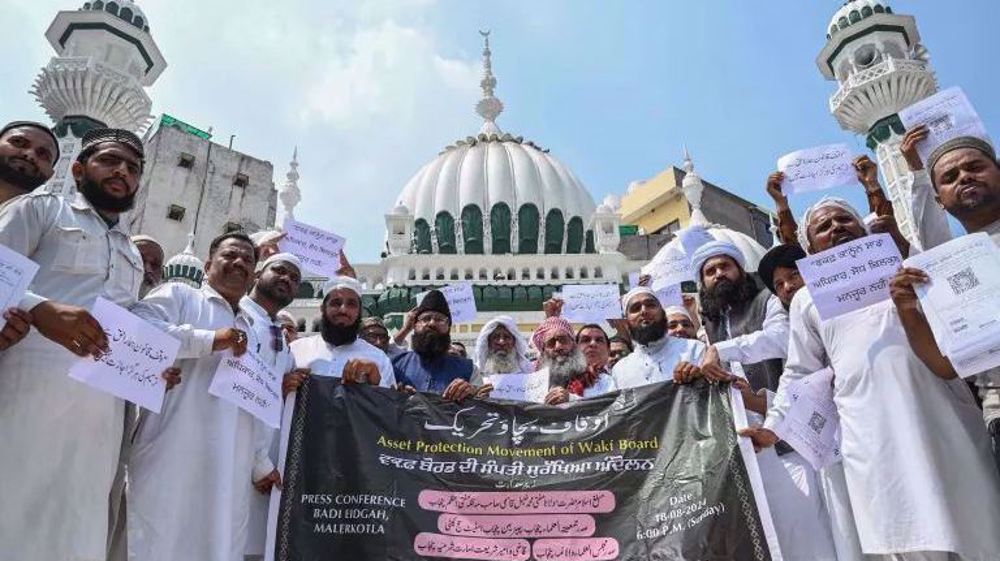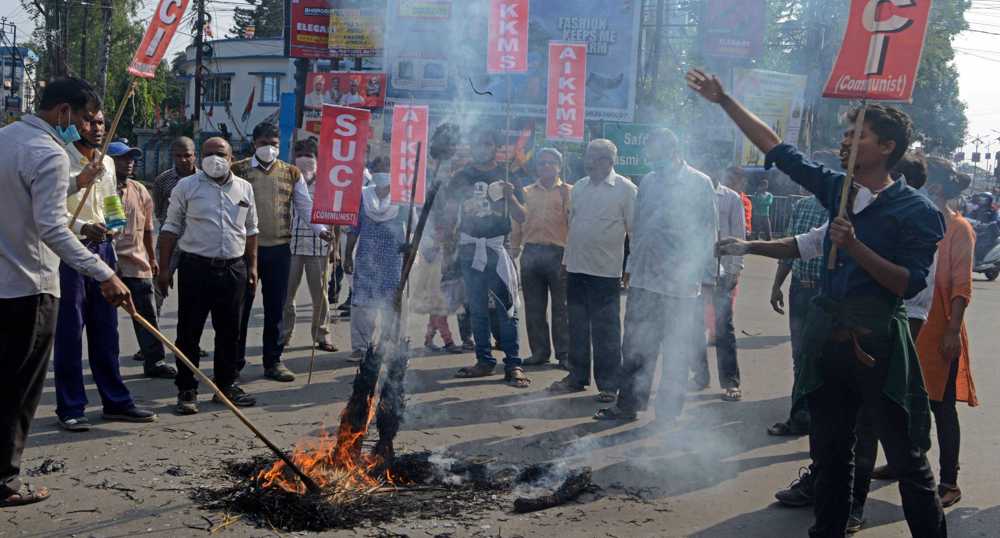Indian farmers to go on hunger strike to pressure Modi on reforms
In India, farmers are piling up pressure on the government of Prime Minister Narendra Modi to repeal controversial agricultural reform laws; they will go on a 24-hour relay hunger strike at all protest sites near the capital Delhi.
The protest leaders called on supporters to skip one meal on December 23 in solidarity with the movement against the new laws, which were approved by the parliament without much debate earlier this year.
"We are going on a 24-hour relay hunger strike, skipping meals, to press our demands of repealing three agricultural laws," said Yogendra Yadav, a prominent protest leader, on Monday.
Jagjit Singh Dallewal, president of the Bharti Kisan (farmer) Union, also called upon supporters to boycott Modi’s monthly radio address.
“People should bang their utensils at home on Sunday when Modi speaks up on radio.”
The Indian farmers, mainly from the Sikh-dominated Punjab and neighboring Haryana, have blocked highways into New Delhi for the past three weeks.
The farmers, many in their sixties or above, have been braving harsh winter in the north to camp out in the open with their tractors and trailers parked bumper to bumper.
More than 30 protesters have died in recent weeks, mainly due to the cold with temperatures falling to 4 degree Celsius.
On Sunday, Modi made a surprise visit to a historic Sikh temple in New Delhi to soothe the situation.
But people want him to also visit the site of a protest on the suburbs of New Delhi, where the farmers have set up makeshift camps.
In September, Modi’s government passed three laws that it says are meant to overhaul procurement procedures and grant farmers more options to sell their products.
The farmers say the proposed amendments will create an opportunity for large private companies to enter and exploit the entire agriculture sector.
Modi has invited the farmers for more talks. Several rounds of negotiation have failed to break the standoff.
People in several other countries have also been protesting in solidarity with Indian farmers.
The newly-passed laws could have a significant impact on consumers globally as reliance on India for spices such as turmeric, chili and ginger cannot be taken for granted.
India is the largest producer, consumer and exporter of spices in the globe.
It is also the leading exporter of Basmati rice and the world's largest milk producer, according to the country's Agricultural and Processed Food Products Export Development Authority.
More than half of India's working population comes from the agricultural sector, according to the most recent census in 2011.
A 2017 study found that suicides of nearly 60,000 Indian farmers had been linked to rising temperatures and the resultant stress on India’s agricultural sector over the past 30 years.

Indian parliament passes bill seen as step to seizure of mosques

BRICS to establish 'digital' payment system: Russian minister

‘Humanity means nothing to Israel’: Top Indian MP blasts brutal Israeli airstrikes on Gaza
VIDEO | British Medical Association cancels pro-Palestinian doctor’s speech
Trump admin. to freeze Brown grants, impose Harvard restrictions over pro-Palestinian protests
VIDEO | Yarmouk demonstrations condemn Israeli attacks on Syria, Palestine
VIDEO | Indian parliament approves controversial Muslim Waqf law
Yemen's army targets Tel Aviv, downs Giant Shark F360 drone in Sa’daa amid Israel’s genocide in Gaza
Islamic scholars issue fatwa urging Muslim nations to support Palestinian resistance
VIDEO | Trump trade war
Houthi: Intensified US aggression against Yemen failed











 This makes it easy to access the Press TV website
This makes it easy to access the Press TV website